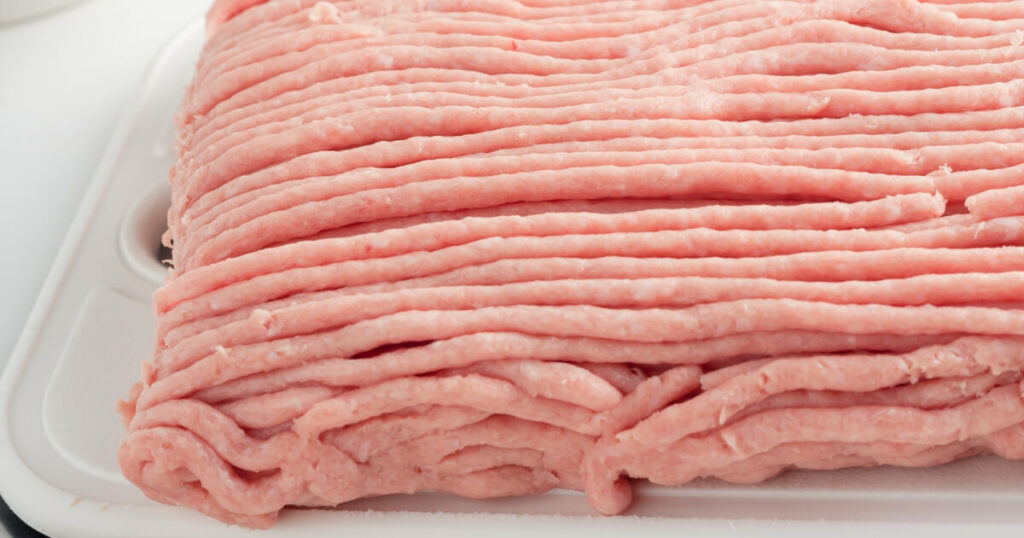Ground turkey can be a healthy versatile ingredient for tacos chili, burgers, meatballs and more. But like any meat, it has a limited shelf life. Have you ever been prepping dinner only to get a whiff of your ground turkey and wonder – is this still good to eat?
If you aren’t sure about the freshness of your ground turkey, your nose can provide important clues. Let’s explore what spoiled ground turkey tends to smell like, so you can make an informed decision about whether to cook it up or throw it out.
Fresh vs Spoiled: The Telltale Turkey Scent
Fresh raw ground turkey has very little odor It should have a mild, meaty smell that’s not unpleasant or strong. If you open up the package and are met with a sour, ammonia-like or other offensive smell, that’s a red flag
Bacteria multiply quickly in ground turkey, faster than with whole cuts of meat. The oxidization process also causes an “off” or rotten scent. If the turkey gives off a sour, sulfurous odor, it has likely gone bad.
Cooked ground turkey that has gone bad also tends to have a distinctive rotten smell Even though cooked, bacteria and other pathogens survive when poultry isn’t stored properly Any leftover cooked ground turkey that smells off should be discarded.
Trust Your Nose: Foul Odors Mean Don’t Eat
Your nose is an important tool when it comes to food safety. We tend to have sensitive scent receptors that pick up on spoiled meat right away.
If your ground turkey has an unpleasant, sour or sulfurous smell, don’t taste it! The scent should tell you all you need to know – the turkey has gone bad and may contain harmful bacteria. Consuming it could lead to food poisoning.
When in doubt, remember it’s better to be safe than sorry. The smell test is a quick way to identify if your ground turkey is past its prime before you even cook it. If the scent is bad, toss it out without hesitation.
Other Signs Your Turkey Has Turned
While scent is the most foolproof indicator, look out for other common signs of spoiled ground turkey as well:
- Change in color – gray, green or yellow tinges signal bacteria growth
- Slimey or overly tacky texture – excessive moisture allows microbes to flourish
- Mold – even a small spot indicates deeper contamination
- Dull or dark spots on cooked turkey – oxidization has occurred
Trust all your senses when inspecting ground turkey before cooking. An experienced home cook knows that quality ingredients are the foundation of every great dish.
Proper Storage is Key for Freshness
To get the most out of your ground turkey, proper storage is critical. Here are some tips:
- Store turkey tightly wrapped in its original packaging or an airtight container. Exposure to air speeds up spoilage.
- Place immediately in the refrigerator, ideally in a designated meat drawer at 40°F or below.
- Freeze for longer storage. Raw ground turkey keeps 4 months in the freezer, cooked turkey for 3 months.
- Thaw frozen turkey in the refrigerator, not on the counter.
- Once thawed, use within 1-2 days.
- Cooked turkey lasts only 3-4 days in the fridge.
Following safe storage limits will help ensure your ground turkey stays fresh, retaining its texture and nutrients. Taking just a few minutes to sniff your turkey before cooking can save you from a big disappointment!
What To Do If You’ve Eaten Bad Turkey
We’ve all been there – you go to cook a meal only to realize one key ingredient seems a little off. If you suspect you’ve consumed spoiled ground turkey, stop eating it right away.
Stay hydrated by drinking water, broths or electrolyte beverages. Be on the lookout for food poisoning symptoms like nausea, vomiting, diarrhea and cramps. Seek medical care if they persist longer than 48 hours to prevent dehydration or other complications.
In the future, remember to give ground turkey a sniff test before eating it. Doing so can spare you discomfort down the line.
Trust Your Nose above All Else!
So if you catch a whiff of your raw or cooked ground turkey and something smells “off,” err on the side of caution. Don’t taste it or think that cooking might eliminate any risks. Listen to your nose!
Spoiled ground turkey has a very distinct rotten, sulfurous smell that signals it’s time to throw it out. Relying on your sense of smell can save you from a bout of foodborne illness.
Your schnoz knows when turkey has gone bad. The nose doesn’t lie when it comes to sniffing out spoiled meat. If your ground turkey fails the smell test, don’t take any chances. Toss it in the trash and use fresh turkey in your next recipe.

StepsSection 1 of 4:
- Cook ground turkey until it has an internal temperature of 165 °F (74 °C) to kill bacteria that cause foodborne illnesses.[11] If the juices are still pink, keep cooking your turkey until they run clear. Thanks Helpful 0 Not Helpful 0
- Wash your hands after handling raw or spoiled ground turkey so you don’t spread bacteria to other food or kitchen surfaces.[12] Thanks Helpful 0 Not Helpful 0
Submit a Tip All tip submissions are carefully reviewed before being published Name Please provide your name and last initial
You Might Also Like
Thanks for reading our article! If you’d like to learn more about meat storage, check out our in-depth interview with JoAnna Minneci.
The Reason: Why Does Ground Turkey Smell Bad
FAQ
How long does ground turkey last in the fridge?
What color should ground turkey be when cooked?
Can turkey burgers be a little pink?
